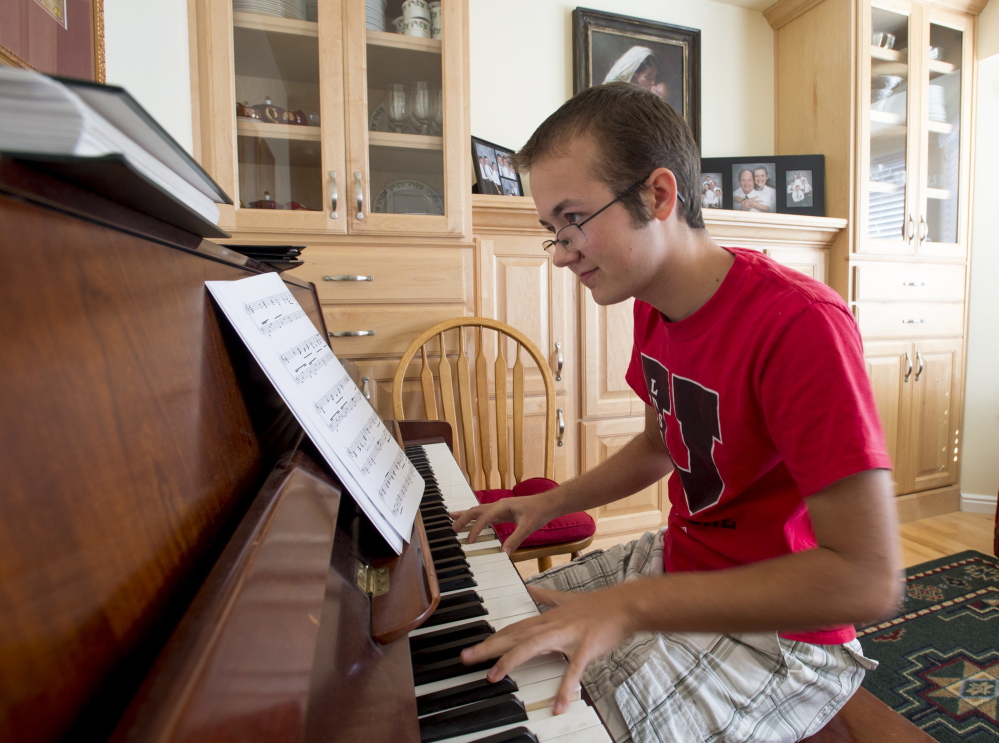SYRACUSE, Utah — Sixteen-year-old Grayson Moore had no label, only metaphors, to describe the disconnect he felt between his body and soul.
It was like car sickness, he said, when your eyes and inner ears disagree about whether you are moving.
“It makes you sick,” Moore said, according to The Salt Lake Tribune. “That’s the same with gender.”
When Moore’s mother gave her then-daughter a vocabulary for the feelings – “gender dysphoria” or transgender – there followed an immediate sense of relief and recognition.
And, he said, God confirmed that he was not just a tomboy. He was in the wrong body.
Such moments come in the life of all transgender persons – times when vague feelings of general discomfort with their identity crystallize into that realization.
LINK BETWEEN BODY AND SPIRIT
Mormonism – with its emphasis on the physical link between bodies and spirits and its insistence that gender is “eternal” – initially made it tougher to acknowledge what was happening inside of them.
Since switching genders (though none has had sex-reassignment surgery), all three said they have found psychological and theological peace, even divine approval, and a surprising welcome from their local LDS leaders and congregations.
They are among a growing but little understood minority in The Church of Jesus Christ of Latter-day Saints.
Transgender Mormons in Utah have formed a support group, march in gay pride parades – though most are not gay – and talk openly about their experiences. A weekly “Family Home Evening” group routinely draws about 30 participants along the Wasatch Front.
Efforts to bring awareness are crucial, they believe, because most members of the Utah-based faith know little or nothing about what it’s like to be transgender. And many judge and reject transgender loved ones.
Still, the faith does have policies in place, saying elective sex-reassignment surgery “may be cause for formal church discipline,” according to the church’s Handbook
An official LDS document, “The Family: A Proclamation to the World,” written and approved by the faith’s top leaders, states that “gender is an essential characteristic of individual premortal, mortal, and eternal identity and purpose.”
“Because of this,” church spokesman Eric Hawkins writes in an emailed statement, “the church does not baptize those who are planning transsexual operations. If a person has already had such an operation and wishes to join the church, they may be baptized only after an interview with the mission president and approval by the First Presidency.
“The church does not ordain transgender people to the priesthood or issue temple recommends to them,” Hawkins adds. “Church leaders counsel already-baptized members against elective transsexual operations, and bishops may refer specific cases to the stake president for possible resolution at that level or by the First Presidency.
THE ROLE OF GOD
“We have faith that ultimately, the emotional pain that many of these people feel will be addressed by a loving God who understands each individual’s circumstances and heart.”
Many active LDS transgender persons accept the church’s statements about gender being an essential characteristic and are willing to live with some restrictions.
Still, despite how comfortable transgender Mormons are in their new skin, the LDS Church is a very gendered place – men go to priesthood meetings, women to Relief Society; men officiate at rituals and general meetings, women lead auxiliaries; men sit on one side in the temple, women, generally, on the other – and that complicates their lives inside the faith.
Growing up in Davis County – or “Mormonopolis,” as Moore calls it – the young Latter-day Saint girl named Grace had severe panic attacks beginning in late elementary school and continuing through junior high. By high school, says the 22-year-old math major at the University of Utah, his distress was so extreme he hardly could function.
Moore’s mother, Neca Allgood, took him to various doctors but no one could diagnose his problems.
Trained as a molecular biologist and a scientist by instinct, Allgood had a suspicion that her daughter might have “gender dysphoria.”
When Allgood asked Moore if he was a girl in his body but a boy in his brain, the young man simply said, “not just my brain – in my soul.”
That night, Grace Moore knelt in prayer, asking God, “Am I your son?”
He said he got a powerful spiritual affirmation that he was, indeed, a boy and that “it was going to be OK.”
His mother essentially received the same message.
“The answer to my prayers was to love him and help him live as a boy,” she said.
Send questions/comments to the editors.



Success. Please wait for the page to reload. If the page does not reload within 5 seconds, please refresh the page.
Enter your email and password to access comments.
Hi, to comment on stories you must . This profile is in addition to your subscription and website login.
Already have a commenting profile? .
Invalid username/password.
Please check your email to confirm and complete your registration.
Only subscribers are eligible to post comments. Please subscribe or login first for digital access. Here’s why.
Use the form below to reset your password. When you've submitted your account email, we will send an email with a reset code.